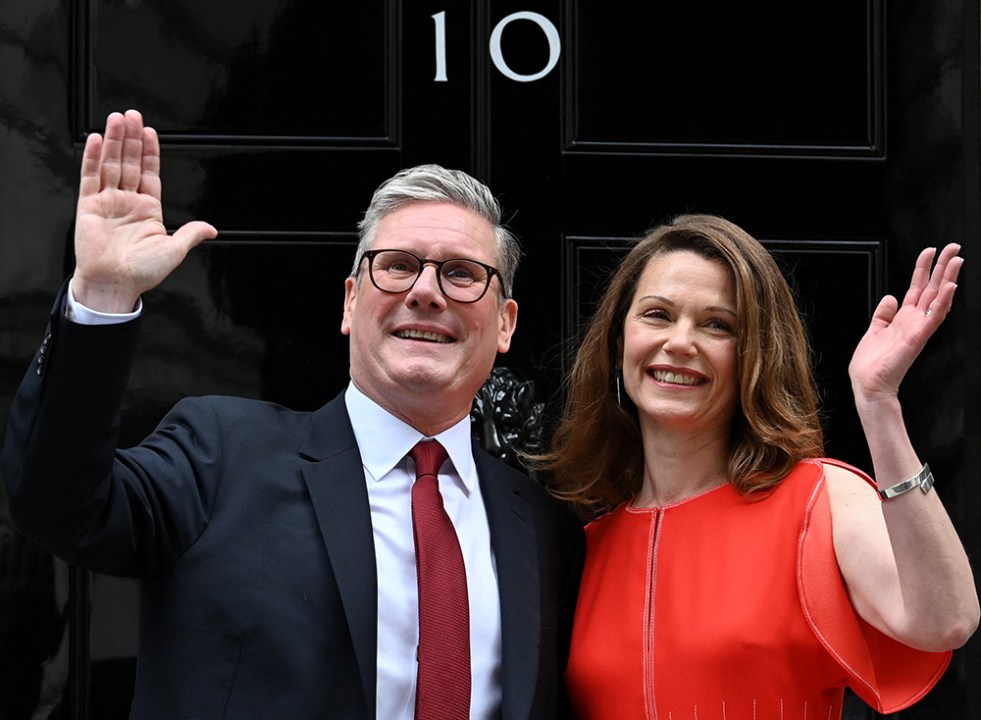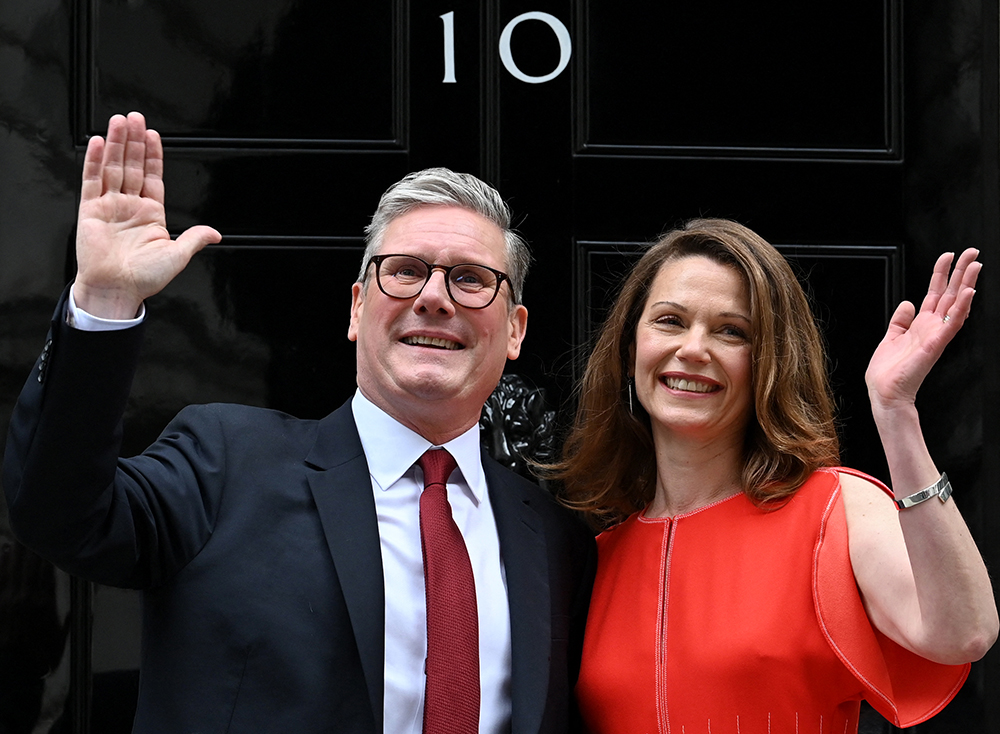Before he became Prime Minister, Keir Starmer admitted he was concerned about what life in Downing Street might be like for his children. It was, he said, the ‘single thing’ that kept him awake at night.
What’s notable is that we aren’t even aware of Starmer’s children’s names. They are teenagers but that’s about all we know about them. They were not photographed when Starmer and his wife Victoria entered No. 10, nor have they been seen since. ‘We do try to protect them… we don’t use photos of them in any way,’ Starmer said. There seem to be no pictures in the public domain of Starmer with his children.
A smartphone ban shouldn’t come from the government; it should come from parents
I’d say that is quite an achievement. As a former human rights lawyer, our new PM must be more familiar than most with privacy laws. He would presumably have little time for anyone infringing his own family’s privacy even if the Starmers now reside in one of the most famous addresses in Britain. When asked about the Princess of Wales as she recovered from surgery earlier in the year, he replied: ‘I think we should leave her alone… she deserves privacy.’
Starmer is a little worthy on the matter, but I’d say he’s setting a good example. We’ve become accustomed to prime ministers cynically using their children as props to show their softer, more relatable side. It’s not just politicians who do this. Social media encourages us to do the same. The question is, is sacrificing so much of our privacy sensible?
The boundaries are blurring fast and it’s sometimes hard to take stock of what’s normal. A photo of your child seen by ten people? A thousand? A million? Children can’t consent to their privacy disappearing. I wonder how many parents feel guilty for having published photos of their children online. You never quite know who’s looking or where the photos might end up. Or, for that matter, how children will feel in years to come about their lives being broadcast online.
We have been conditioned to believe there is value in trading away our private lives, so we snap and post, snap and post. Instagram is insatiable. Anyone who uses it knows that photos of children go down well, almost as well as photos of cats. The most generous interpretation is that Instagram is not so different from passing around a photo album. I’m not sure I really believe that.
Parents are entitled to use smartphones however they like, of course, but there seems to be growing acceptance that children should not. We’ve seen the psychological damage done to the Gen Z iPhone guinea pigs, now reaching their late teens and early twenties and riddled with mental health problems. Self-harm rates for teenage girls in the UK have risen by 78 per cent. Anxiety diagnoses for 18- to 25-year-olds have soared by 92 per cent. As Dr Jonathan Haidt points out in his book on the risks of smartphones, nearly 40 per cent of teenage girls who spend more than five hours a day on social media have been diagnosed with clinical depression. Yikes. It’s enough to make you want to throw your phone out the window.
There is pressure on the government to ban phones for the under-16s. Sophie Winkleman and Isy Suttie, who played Big Suze and Dobby in Channel 4’s Peep Show, are at the forefront of this campaign. Yet Starmer has said he isn’t in favour of ‘simply banning’ phones. He doesn’t want his own children to be photographed – yet he’s not an anti-phone crusader? Why might that be?
Perhaps it’s because a phone ban for children doesn’t address the fundamental issue that it is a parent’s job – rather than the state’s – to protect their child. Posting a photo of a child on a public forum is to make a decision about a child’s private life. Giving a child a smartphone despite the growing evidence of the dangers is now a decision to expose a child to these harms. Starmer’s approach is quite nuanced and respects the autonomy of families. It would in many ways be easier if the state banned smartphones for under-16s and became the common enemy. But parents should get to decide what boundaries are enforced, much as Starmer has done with regards to his family being photographed. A phone ban shouldn’t come from the government; it should come from parents.
I know this is easier said than done. When I’ve spoken to parents of children older than mine, the impression I get is that it can be hard to avoid giving a child a smartphone because of peer pressure and ‘pester power’. If every other child has a phone, who wants their own child to feel left out? Once a child has a phone, there is no going back.

What is heartening is the rise of grassroots movements encouraging parents to resist this pressure. Smartphone Free Childhood was founded earlier this year by two mothers who wanted to support each other in their decision to hold off on giving their children smartphones. The movement has grown and encourages parents and schools to take collective action at a local level. ‘Let’s all just say no, even if our children get a bit crabby’ seems to be the message. The children will be better off in the long run. The network already has hundreds of thousands of members across the country. It is ‘the beginning of the global tipping point in the fight back against a phone-based childhood’, says Dr Haidt.
I’m grateful to the mothers who have led this campaign. I’m also grateful we have a Prime Minister who seems tuned in to what our hi-tech era is doing to childhood. My own daughter is about to start school and I’ve already heard through the parental grapevine that it is increasingly frowned upon for children to be given a smartphone. Phew. Judgmental school gate mothers are a powerful force. I’m ready to be conscripted.









Comments